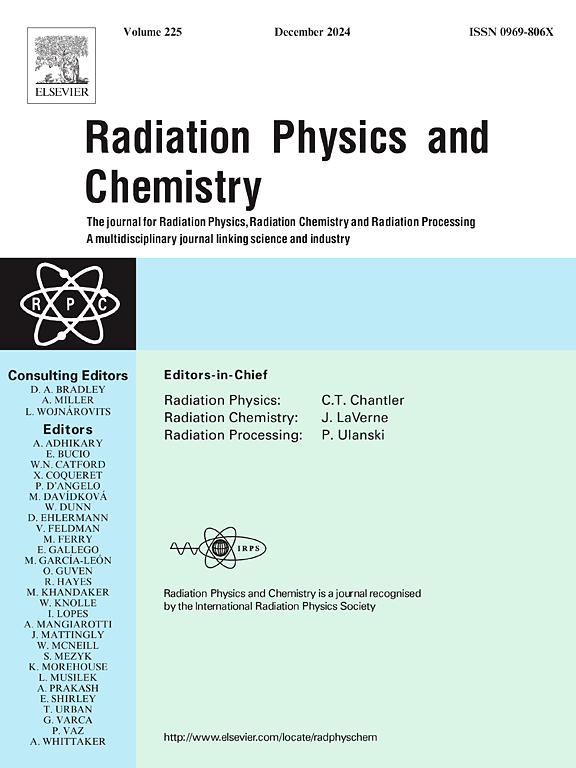Prediction of Half-Value Layer of glass-based materials using machine learning algorithms
IF 2.8
3区 物理与天体物理
Q3 CHEMISTRY, PHYSICAL
引用次数: 0
Abstract
Accurate prediction of the half-value layer (HVL) in radiation shielding materials is essential for optimizing their composition and performance. In this study, we employ four ensemble machine learning models XGBoost, LightGBM, Gradient Boosting Regressor (GBR), and Random Forest to predict HVL based on the chemical composition of glass-based materials. Each model was fine-tuned using Optuna’s Bayesian optimization and evaluated through 5-fold cross-validation and a separate testing phase using metrics including利用机器学习算法预测玻璃基材料的半值层
辐射屏蔽材料中半值层(HVL)的准确预测对于优化材料的组成和性能至关重要。在这项研究中,我们采用了四种集成机器学习模型XGBoost、LightGBM、Gradient Boosting Regressor (GBR)和Random Forest来预测基于玻璃基材料化学成分的HVL。每个模型都使用Optuna的贝叶斯优化进行微调,并通过5倍交叉验证和使用R2、RMSE、MAE和MAPE等指标的单独测试阶段进行评估。所有模型均具有较高的预测性能(R2>0.996),其中GBR模型的预测效果最好(R2=0.999, RMSE=0.0772, MAPE=0.09%)。XGBoost的表现也很有竞争力,在精度和计算效率之间提供了平衡。这些结果突出了梯度增强方法在加速辐射屏蔽材料的设计和研究方面的潜力,并显示了它们在识别材料数据库中复杂的非线性相关性方面的有效性。
本文章由计算机程序翻译,如有差异,请以英文原文为准。
求助全文
约1分钟内获得全文
求助全文
来源期刊

Radiation Physics and Chemistry
化学-核科学技术
CiteScore
5.60
自引率
17.20%
发文量
574
审稿时长
12 weeks
期刊介绍:
Radiation Physics and Chemistry is a multidisciplinary journal that provides a medium for publication of substantial and original papers, reviews, and short communications which focus on research and developments involving ionizing radiation in radiation physics, radiation chemistry and radiation processing.
The journal aims to publish papers with significance to an international audience, containing substantial novelty and scientific impact. The Editors reserve the rights to reject, with or without external review, papers that do not meet these criteria. This could include papers that are very similar to previous publications, only with changed target substrates, employed materials, analyzed sites and experimental methods, report results without presenting new insights and/or hypothesis testing, or do not focus on the radiation effects.
 求助内容:
求助内容: 应助结果提醒方式:
应助结果提醒方式:


